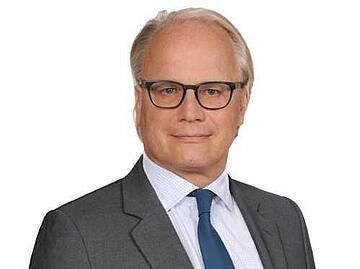Global China Conversations #7
How do investment screenings affect (Chinese) direct investment?
Topic
For some years now, foreign direct investment in private companies has been subject to state control in many European countries. The screening of mergers and acquisitions above a certain size, in specific sectors, and often depending on the investor's proximity to a foreign state, is officially justified on the grounds of protecting public order. In the public debate, the rapid increase of Chinese investments in Europe until 2016 is viewed as one of the main reasons for the introduction of investment screenings, the expansion of the number of controlled economic sectors, and the introduction of the new intra-European coordination. In the seventh Global China Conversation, our speakers analysed these developments detailed above and explained the importance of investment screenings in practice. We also discussed the consequences of investment audits on (Chinese) direct investments in European companies and undesirable side effects on the economy.
Program
The event consisted of different impulse lectures followed by a discussion.
The Global China Conversation #7 was held in German.
Summary GCC#7
Literature
Dr. Pohl's impulse lecture was based on information and data that can be found at: https://oe.cd/natsec
The impulse lecture by Dr. Honrath was based on slides and information, which may be requested directly from him: AlexanderHonrath@eversheds-sutherland.com
Speakers

Dr. Alexander Honrath
Alexander Honrath is Partner at Eversheds Sutherland in Munich, Head of the European China Desk of Eversheds Sutherlands, one of the largest law firms in the world. He is regularly advising Chinese clients on their take-overs of German companies and their expansion strategies in Europe. Among his Asian clients are large Chinese corporates, state-owned enterprises and governmental institutions. He is frequently invited on international conferences to speak about Sino-German transactions and IPOs and is in exchange with Chinese institutions. He is further involved in Asian-European capital markets transactions, e.g. he advised on the first IPO of a German company at the regulated market in Hong Kong. Prior to his engagement at Eversheds Sutherland, he worked as investment banker in two large banks in the capital market business.

Dr. Joachim Pohl
Joachim Pohl serves the international investment policy community at the OECD. As Head of the International Investment Governance team, he leads the Organisation’s work on investment policies designed to manage security threats associated with international investment; investment treaties; and investment policy monitoring.
In his earlier roles in the Organisation, he advised developing and emerging economies in Asia and the Pacific on governance and anti-corruption policies.
Before joining the OECD, Mr. Pohl, a German national, taught constitutional and public law at Humboldt University Berlin and MGLU Moscow. He holds a PhD in law from Humboldt-University and a master’s degree in political science from the University of Bordeaux.
Moderation

Dr. Vera Eichenauer
Dr. Vera Eichenauer is an economist at the KOF Swiss Economic Institute at the ETH Zurich. She is interested in economic policy and questions of international economic governance. Her current research includes Europe's handling of China's economic presence and influence through economic policy measures. She received her PhD in Economics from the University of Heidelberg in 2016 and her master’s degree in International Relations from Sciences Po Paris.
